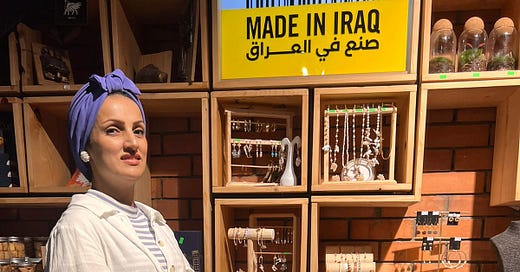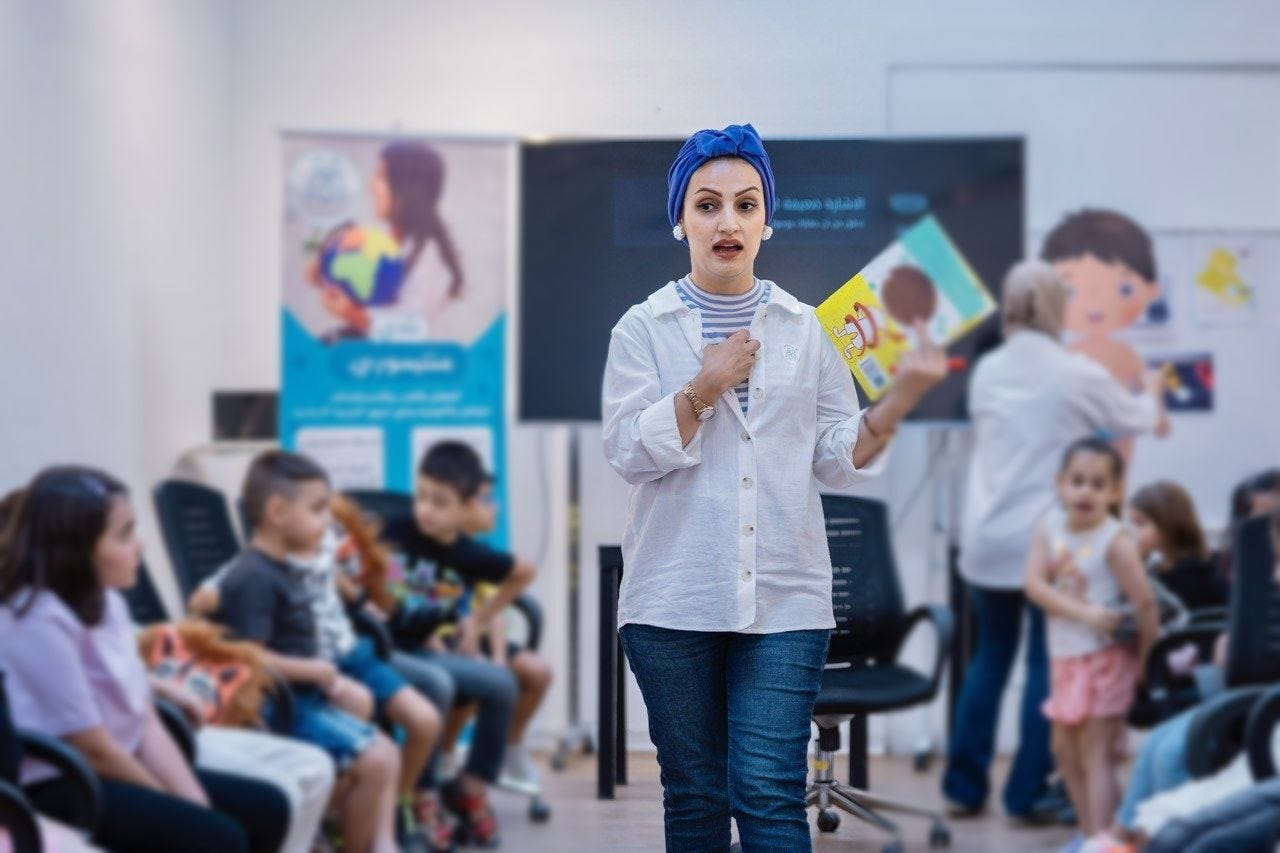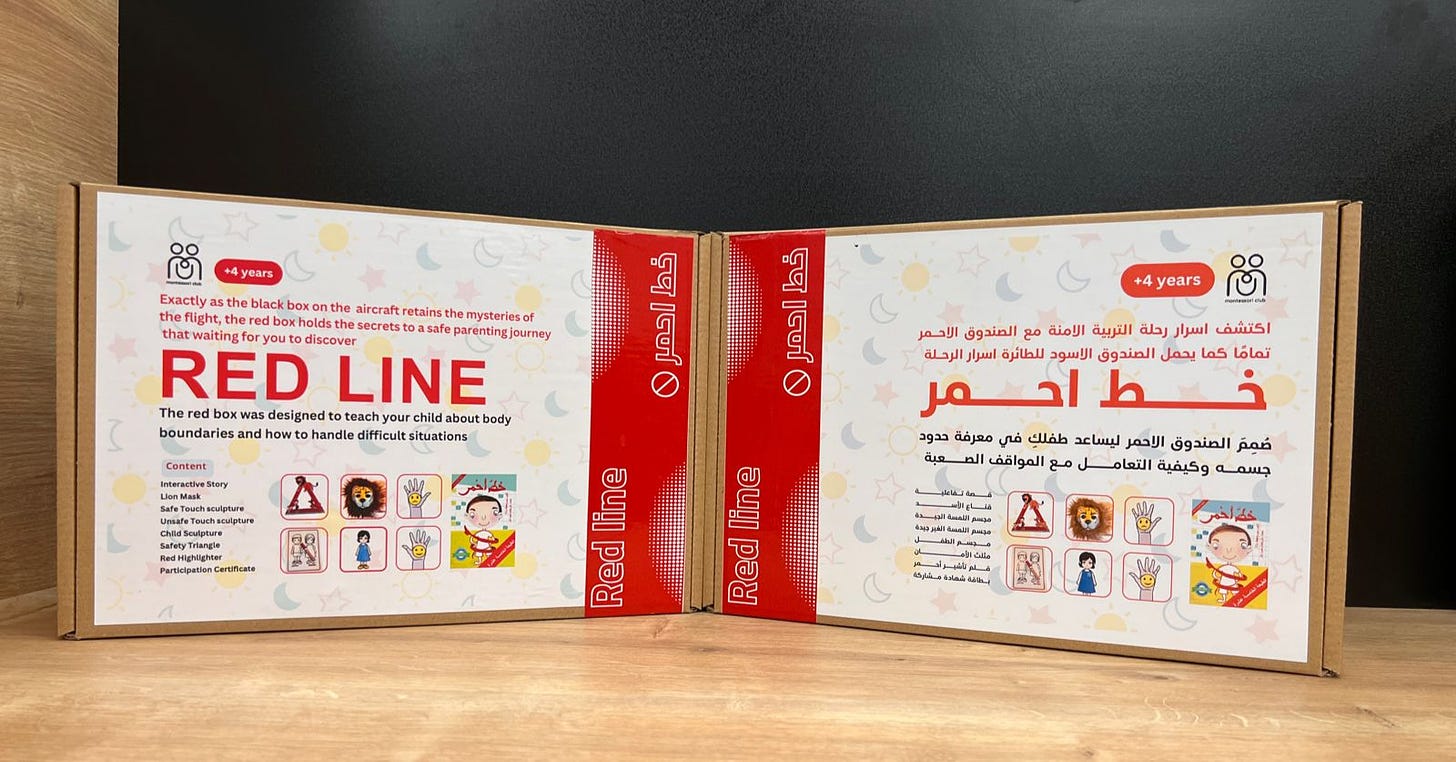Tackling Taboos With Minors
Zahraa Raad Abathar is teaching children about stranger danger, using age-appropriate methods to tackle subjects that are sidelined in Iraq
Child harassment is rarely spoken of in Arab societies. Most schools don’t teach young children about risks posed by strangers, or how to respond when dangers arise. This worries Zahraa Raad Abathar, a child educator in Iraq who believes that treating the topic as taboo leaves young people vulnerable. And as a mother of two daughters, she feels adults are at fault. “There is a gap in the Arab world between kids and adults – young people don’t feel safe discussing this with us,” she says. “People do not talk about such matters at all… I want to close that gap.”
Her solution is Red Line, an awareness club that runs workshops to educate children about acceptable boundaries when it comes to physical interaction. Through pictures and games, she teaches age categories from 3 to eight how to respond if a potentially threatening situation arises. “Arabic culture is very tactile, there’s a lot of cheek pinching and cuddling when it comes to kids, so it can be hard to draw that line,” Abathar explains.
Using interactive materials and pictures, she encourages children to circle areas of the body that are off-limits, holding up hand signs to show what’s okay, and what’s not. “We use the safety triangle, which has a deer to symbolize when to run, a lion to show when they should scream, and a trusted grown-up that they can always go to for help,” she explains.
Young children attend with a parent and are encouraged to select several adults they can talk to if they are subjected to abuse of any kind. At the end, children receive a certificate, confirming that they know how to stay safe and what to do if they feel at risk. “It might not always be an adult. It could be an older child. We are trying to explain that these things do happen in schools and communities, but they are never talked about,” Abathar says.
Her campaign hasn’t been easy, particularly in Iraq, where family values resist any mention of sexual activity, even in the context of a crime. Approaching public schools, she has met with almost blanket resistance, though private schools have been more open to hosting Red Line sessions. She has also approached family events, but so far none have agreed to host her sessions. Behind the scenes, however, interest is mounting as more and more parents contact Abathar to book private sessions. “The subscription rate is amazing. Parents are really impressed with the content,” she says.
Usually, it’s mothers who reach out. Most of the resistance comes from fathers, some of whom prevent their families from attending. “They say it’s not a topic you should talk to children about and ask why I don’t talk about kids spending less time on their mobiles,” she says. But as demand increases, she is receiving requests from some mothers to hold workshops through sessions conducted online.
With support from Ideas Beyond Borders, Abathar has created 100 kit boxes that will be sent to parents hoping to access the workshops remotely, ensuring the lessons reach as many children as possible, despite the barriers society puts in place.
“These Red Line packs will enable children to benefit from this advice in environments where the dangers of child harassment are less likely to be discussed,” says Faisal Al Mutar, President of Ideas Beyond Borders. “It is our duty as adults to protect younger generations and arm them with the knowledge they need to stay safe.”
This article was written by Olivia Cuthbert.






